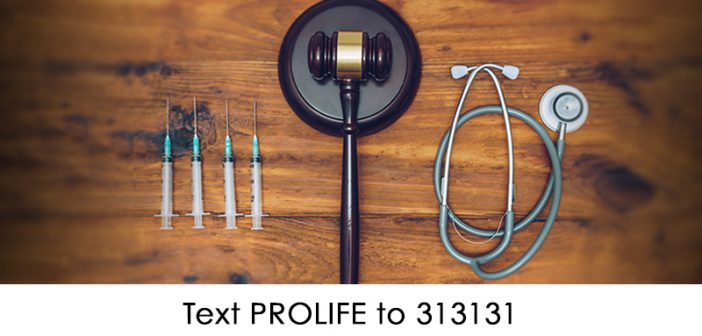The highest court in the Netherlands has expanded deadly anti-Life policies in what was already one of the world’s most progressive euthanasia regimes. In April, the Dutch court ruled that doctors can now legally kill patients in the advanced stages of dementia who previously had a written request to die by euthanasia, generally committed with lethal injection.
The Royal Dutch Medical Association states that euthanasia is currently legal for patients experiencing “unbearable suffering without any prospect of improvement” without access to a “reasonable alternative.” This sweeping criteria, open to broad interpretation, has led to the inhumane killing of a 29-year-old woman who struggled with mental illness, a victim of sexual abuse, and, long before the recent ruling, there were cases of patients being euthanized without consent.
In the Netherlands and neighboring Belgium, two countries with some of the most anti-Life laws in the world, anti-Life groups have remained unsatisfied with the carnage and pushed for euthanasia and assisted suicide to expand to children and patients incapable of giving informed consent.
The Dutch Supreme Court ruling is the conclusion of a case that shocked international observers. In 2017, a 74-year-old woman with dementia was forcibly euthanized. Doctors attempted to sedate her with drugs in her coffee, but the woman awoke while doctors administered a lethal injection meant to end her life prematurely. According to reports, the woman fought back and had to be restrained by her family members while doctors ended her life.
The woman had previously stated that she wanted to die by euthanasia “when the time was right,” but she also stated repeatedly before her death that she did not want to die. Regardless of her clear desire to live, the woman’s medical team claimed she was “suffering intolerably,” another version of the subjective and anti-Life “quality of Life ethic” that has been used to dehumanize and devalue medically fragile or disabled people.
A committee reviewing the case and seeking to formally censure the doctor who killed her wrote, “In her living will, the woman wrote that she wanted to be euthanized ‘whenever I think the time is right.’ But after being asked several times in the nursing home whether she wanted to die, she said, ‘Not just now, it’s not so bad yet.’” The committee continued, “Even if the patient had said at that moment: ‘I don’t want to die,’ the physician would have continued,” noting the doctor’s own account of the case.
Astonishingly, the doctor was acquitted of any wrongdoing by the Hague in 2018, and now the Dutch Supreme Court has again ruled in favor of the doctor’s unethical killing. The Court claims that the ruling is “to give direction to euthanasia lawmaking.” Disturbingly, this “direction” is anti-Life to the fullest extent and gives unequivocal support to killing patients, erring on the side of death.
Showing how far anti-Life ideology has crept into the culture, René Héman, president of the Royal Dutch Medical Association applauded the court’s anti-Life ruling. Héman cautioned that even this sweeping pro-death ruling does not mean anyone can be killed. He said, “With every request to end a life, a doctor must still make an individual assessment if euthanasia is appropriate and if all due care criteria are met.” His comment highlights the absurd nature of euthanasia in which doctors, those given the responsibility to treat patients for their good, are also tasked with the tremendous burden of choosing when and how to end those same lives.
The anti-Life mentality that views human Life as disposable is the same worldview that endorses the killing of preborn babies and newborns for no other reason than a potential disability or life-limiting condition. In Texas, we must guard against both these fatal abuses: killing vulnerable patients and killing disabled babies in the womb. Under the current anti-Life Texas 10-Day Rule, hospitals can make life-and-death decisions, even against the written or stated wishes of the patient and his or her family. Babies who may have a disability can be killed at any stage of pregnancy, long past the stage when they undeniably feel the horrific pain of abortion. Seeing other countries expand their regimes of death should be a reminder to Texas that we have a long way to go to protect innocent human Life in our state.


